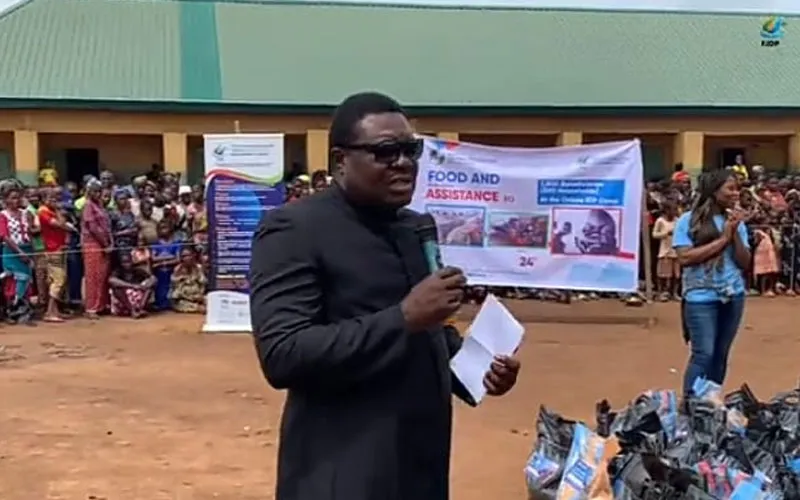Sokoto, 07 August, 2022 / 8:00 pm (ACI Africa).
The Catholic Diocese of Makurdi in Nigeria has raised alarm over the situation of internally displaced persons (IDPs) in its jurisdiction, noting that the victims of attacks by Fulani herdsmen in the country are being pursued by their assailants even in their camps where they have sought refuge.
In a Tuesday, August 2 interview with ACI Africa, the Director of Justice and Peace Commission (JPC) in Makurdi Diocese, Fr. Remigius Ihyula, said that a majority of IDP camps in the town, which is the capital of Nigeria’s Benue State have no security personnel and are vulnerable to attacks.
“There are hundreds of IDP camps in Makurdi but only a few are official. The official ones are government owned and have security personnel. But a majority of these camps are made up of victims of attacks who come together and put up structures where they start staying without any guarantee for safety,” Fr. Remigius said.
The Nigerian Catholic Priest said that in their camps, which have neither a perimeter wall nor any other security structures, the IDPs face the daily danger of attacks.
“Some victims of attacks have been through multiple displacements. In their makeshift camps, they hear shootings every day and are forced to flee constantly,” he said.








